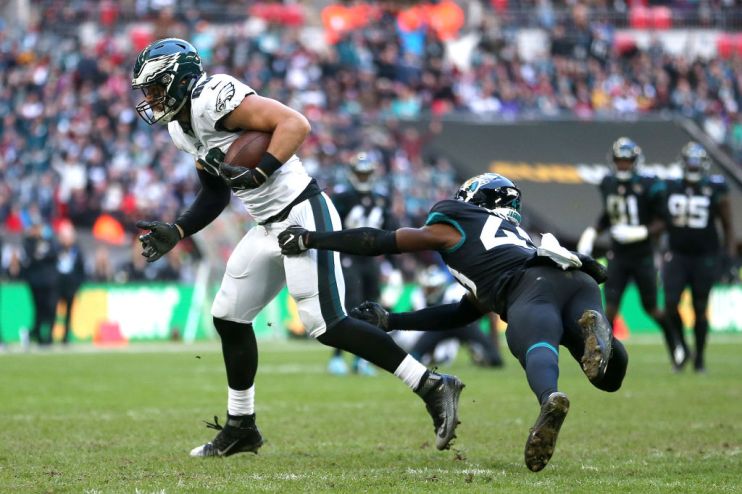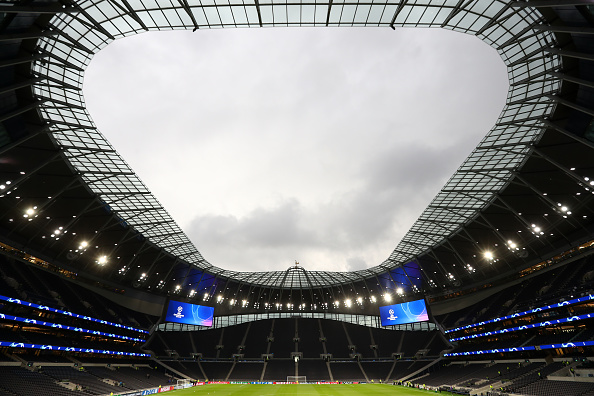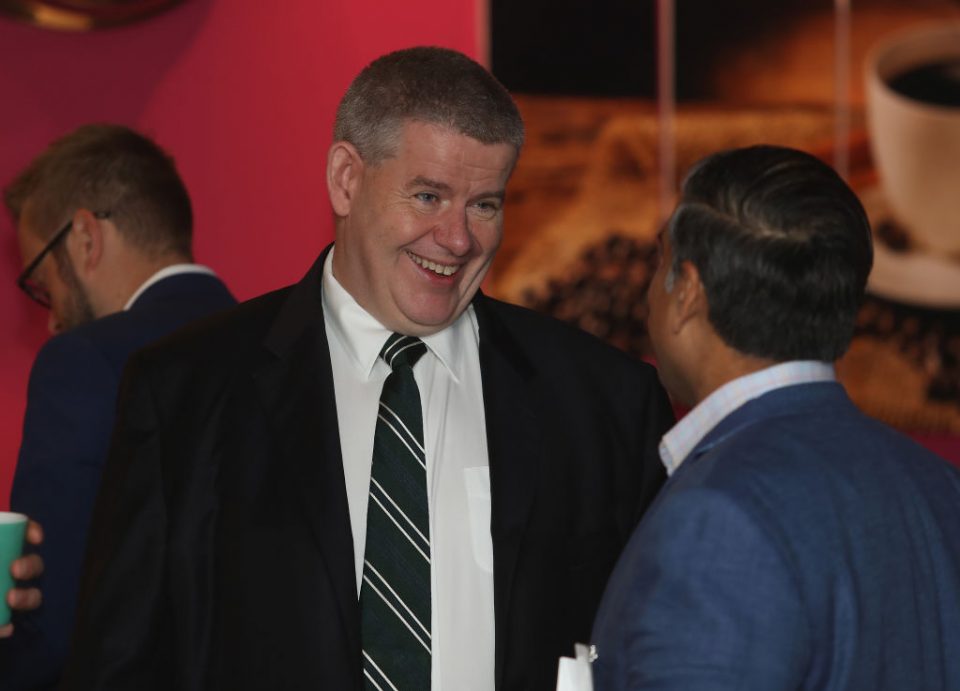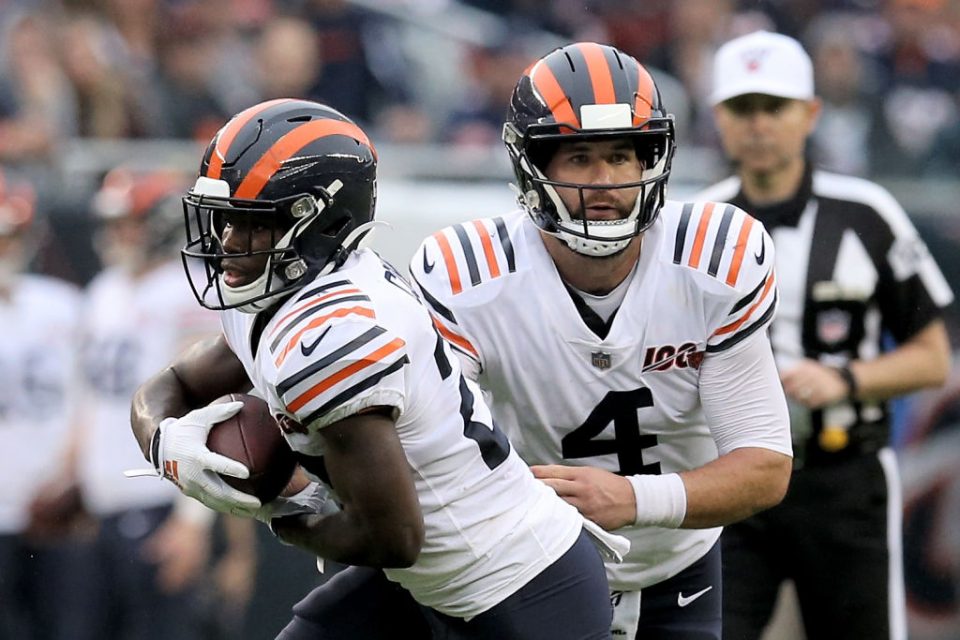NFL London Games: UK director Alistair Kirkwood on cross-Atlantic growth, the Tottenham Stadium and a future franchise

When it was announced that the NFL would host a game in London for the first time, the decision was met with intrigue and scepticism.
Was the risk worth the potential rewards? Were the English public really interested enough in American football? Would jet-lagged players struggle to perform at Wembley?
Twelve years on from that hand-wringing, and with London readying itself for Sunday’s first of four NFL matches over the next few weeks, those questions are easily answered.
Read more: Chief architect on how the Tottenham Stadium was designed
Since the 2007 debut, the NFL London Games have gone from strength to strength, sparking increased interest which has helped grow the league’s brand.
It has blossomed into an unequivocal success, yet back in 2006 there were concerns it would prove a fad. The initial plan was just to stage one fixture every four years.
“I wouldn’t say it was a journey that was highly pre-planned,” NFL UK managing director Alistair Kirkwood tells City A.M. “Certainly it’s been opportunistic and how our fanbase has grown has meant we’ve been able to be given so many opportunities.”
Game-changer
The fruits of the last 12 years’ labour are now there for all to see. You only need to look at Chicago Bears against Oakland Raiders on Sunday to understand the extent of the changes.
For the first time an NFL game will take place at the Tottenham Hotspur Stadium – on a retractable pitch installed specifically for this purpose – where 61,500 fans can enjoy the full spectacle the sport has to offer.
No longer do the NFL’s UK arm have to rent Twickenham and temporarily knock down walls in order to create a changing room big enough to fit 53 players.
The move to Spurs, who have signed a 10-year deal to host two fixtures per season, is undoubtedly a game-changer.

“All of the credit needs to go to Daniel [Levy, chairman] at Spurs because when they first proposed it, to be honest, it sounded really ambitious, and maybe over-ambitious,” Kirkwood says.
“It was very much his vision and very much us then coming on board and buying into that vision, as opposed to us driving it.”
In addition, last month an NFL academy was established in Tottenham to nurture 80 students, give the sport a permanent presence in the city and, hopefully, increase the three per cent of NFL players in the 2018 season who were born overseas.
Direction of travel
That such projects are viable is due to the upsurge in interest in gridiron this side of the Atlantic. Tickets sell out rapidly and Kirkwood says viewing figures for Sky’s coverage have been growing by 30 per cent each year, with 20m people watching some NFL content last year.
But it is the demographic of the audience which particularly excites him, with NFL UK fans’ average age of 27 much younger than those in the US (44) and of indigenous UK sports (45).
The direction of travel is shown by the fact that Minnesota Vikings last month enlisted digital agency Seven League to produce bespoke UK social media content for their growing number of fans.

It is an encouraging picture, but Kirkwood is not content to sit back and admire his work.
“I don’t think, as the Americans like to say, we should drink our own Kool-Aid,” he says.
“While we’ve grown substantially and come a long way, I still think we are scratching the surface of our potential. There’s a lot of room for growth and the sport can become substantially more popular.”
Football’s coming home?
The NFL may have taken the step of launching an academy in London, but there is another, much bigger one, the league is yet to commit to: a UK-based franchise. Although it is a mark of how far the venture has come that it’s even a possibility, Kirkwood remains realistic.
“I think it would be great if it happened but I think it would be a misstep for us to make that the holy grail – the definition of ultimately what the journey is,” he says.

Taxation, harmonisation, immigration and visas would all present logistical barriers, and ultimately might prove too high to overcome.
“It’s really important for us that people are talking about it and believe that it is a good end game to go for, but I don’t necessarily think it’s the right end game to go for,” Kirkwood concludes.
“It’s about making it more popular through all the various devices, make the academy a brilliant success, then let other people decide what they want to do with it.”
Main image credit: Getty Images